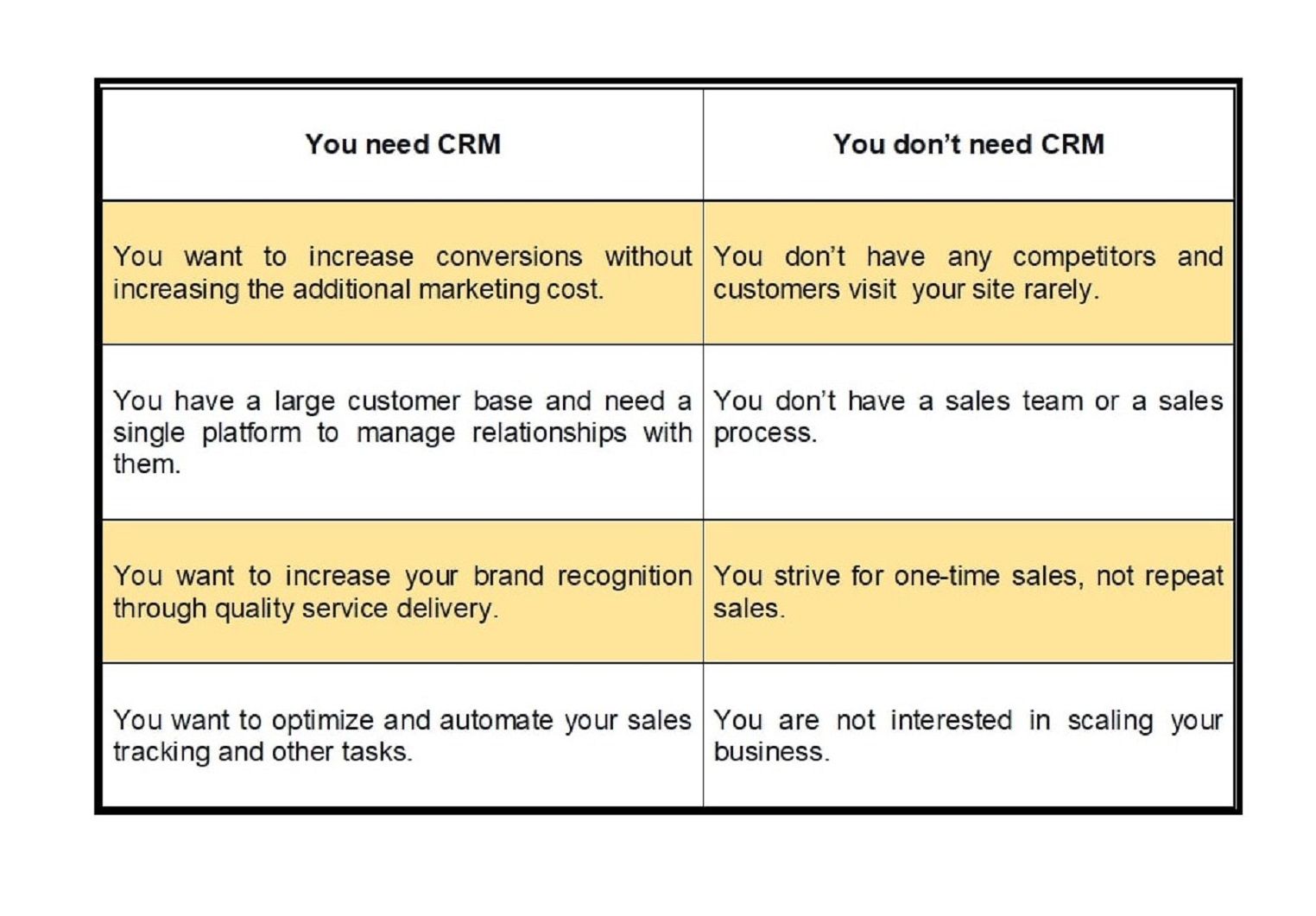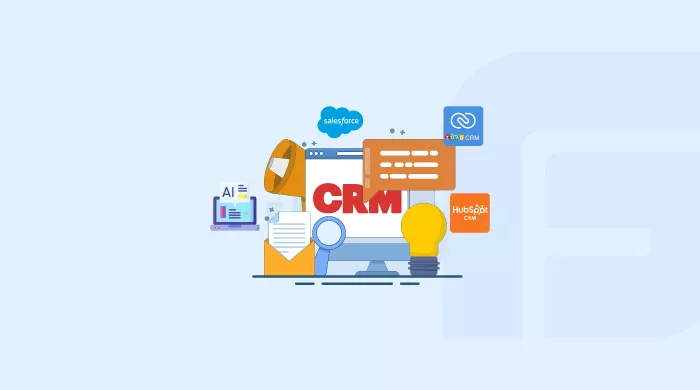Advertisements convince us that we need CRM. Sales and business development experts tell us that we need CRM. In fact, many entrepreneurs decide to implement a Customer Relationship Management system without comprehensively understanding its main features and functionalities. Hence, first, we need to understand and analyze CRM; is it a booming business trend or the real driving force that leads to success?
What is CRM?
First and foremost, it is essential to note that CRM is more than just software. This is a business tactic or approach with a primary focus on the client. The term CRM was first used in 1995, and a couple of years later, the first software appeared in the market. Followers of Custom Relationship Management (CRM) believe that only customer focus can help businesses thrive, which means companies need to provide effective marketing, sales, and customer service processes. Supporting these business goals includes extensive customer data collection, storage, and proper analysis. We also need to work on the internal data processing of the company. CRM software allows us to automate customer interaction processes.

The CRM module is based on three principles: a single database, deep analytics, and the ability to interact with customers through all available communication channels. We can assume that each interaction with the client gets tracked, and the company accumulates a history of data with each individual customer. All this client data gets stored in the user’s card. On the one hand, this provides the most personalized services for each individual client. For example, a sales manager, seeing the history of interaction with the client, understands when the last purchase was made, the communication details, and the client's feedback regarding the interaction. However, a CRM analytic module allows us to segment customers and create clusters based on interests, geography, price preferences, and much more.
Why does a company need CRM?
CRM manages an array of tasks apart from sales. It has been designed to streamline client communication and make it more convenient and efficient. Furthermore, it minimizes any possibility of errors on the manager's part. CRM provides some benefits to various departments of the company.
Role of CRM Software in Amplifying Sales
-
Keeps up-to-date. CRM software helps sales managers see up-to-date information about each transaction and client and plan their future actions. Notifications and automated newsletters enable them to keep everything in place. Align the CRM system with sales force automation software to unlock more advantages.
-
Unified customer interaction base. Sellers can communicate with the client using CRM, whether it’s a phone, SMS, or email. Such integration significantly saves time, allowing managers to focus on other important tasks.
-
Track sales team performance. CRM provides a holistic view of the sales process. Managers can track the sales team's performance to discover the amount of lead generation and monitor the stage of the sales funnel.
Role of CRM System in Boosting Marketing Efforts
- Provides Relevant Content With improved access to customer interaction stories, the marketing team can better understand the problems of the target audience and produce more relevant content.
- Lead nurturing CRM can help to accurately track at what stage of the sales funnel the client is located and create effective advertising activities to help the sales department close the deal.
- Track effective customer acquisition channels by integrating CRM with other tools, such as mailing services, web analytics, and marketing software. The sales team can then determine which channels or activities are key to an effective return on investment.
Role of CRM in Enhancing Customer Support:
- Fast reaction Thanks to a single database, the support team can quickly register a client’s request, appoint a responsible person, and track the status of implementation.
- Personalized customer service The support team can provide customers with the best services, seeing their history of interaction with the company. A manager can easily track the status and continue communicating with the customer.
But does every company really need CRM? The answer is no. Sometimes purchasing CRM software may be unreasonable.

If you represent the first column, let's see how exactly CRM software contributes to business growth.
How can CRM systems drive the success of your business?
Take full control with a single data storage
Probably, it’s one of the main advantages of using CRM. A single customer database provides you with complete control over the most important resource. You will not lose a single lead, and you can build and automate strategies for interacting with different segments and tracking their path through the sales funnel.
Provide efficiency with automation
The CRM approach involves the proper implementation of technology. The automated CRM tool helps your employees do more at the same time. Respond seamlessly to automatic chains of emails or SMS and queries. CRM integration with the site enables one to receive requests and immediately enter them into the system. You can leverage the benefits of the best free and open-source CRM software to streamline the work of various departments.
Build a productive lead nurturing process
Not all deals are closed at the first touch. Decisions about more complex products or services take longer. You need CRM to avoid losing the lead. The detailed history of interaction with each client and the capabilities of segmentation let you categorize the audience into segments and conduct personalized communication, reminding them about the deal.
Increase your sales
By analyzing each individual client, you can understand what your customers really want. CRM allows you to record client data and, if necessary, open the desired client card, creating the impression that you remember and know everyone. In a highly competitive environment, this approach adds value to your brand and contributes to customer retention.
Reduce costs
CRM helps you to process each request and maximize the benefits of interacting with the lead, preventing its loss. Also, your managers can work more effectively with the automation of routine tasks. Thus, you make the most of available resources and save money.
Measure performance
CRM software will help you deal with your concerns related to your team’s performance. You can view the number of closed and lost deals evaluating the efficiency of your employees. The software automatically creates reports without wasting your time compiling them. You just need to analyze them and draw conclusions.
Although there is plenty of free CRM software on the market, many companies prefer custom software development. By creating customized CRM, you get a product that fully meets your requirements and your business's specifics. Such an approach helps companies achieve outstanding results.
Wrapping up
The blog has discussed the benefits of implementing a CRM tool. So, the answer to the question, ‘Is CRM the Driving Force behind Your Success’- Yes, CRM system plays a pivotal role in boosting your sales and improving customer experience. You need to understand the CRM approach before integrating it and automating the sales process. Implementation of CRM is primarily a work on the internal processes of the company. If you are ready for it, then CRM will be a great tool for scaling and growing your business. If you wish to know more about CRM software systems and their benefits, check out this buyer's guide to CRM software.








